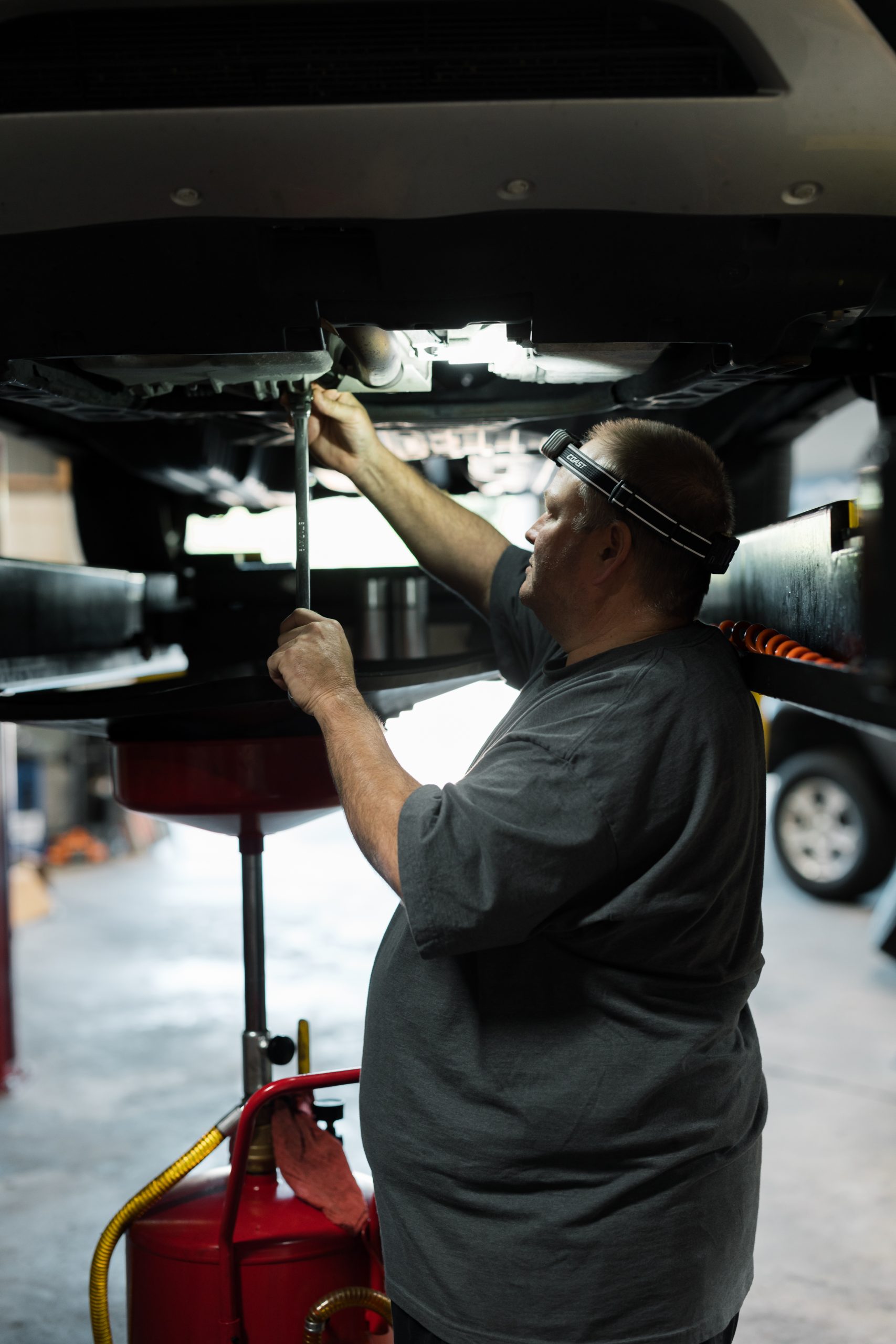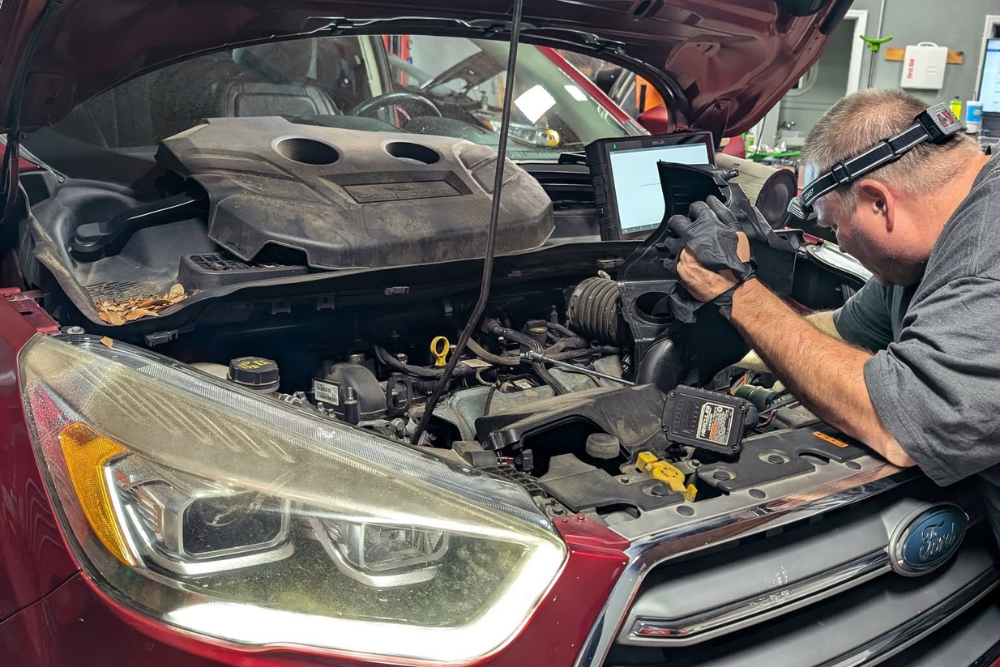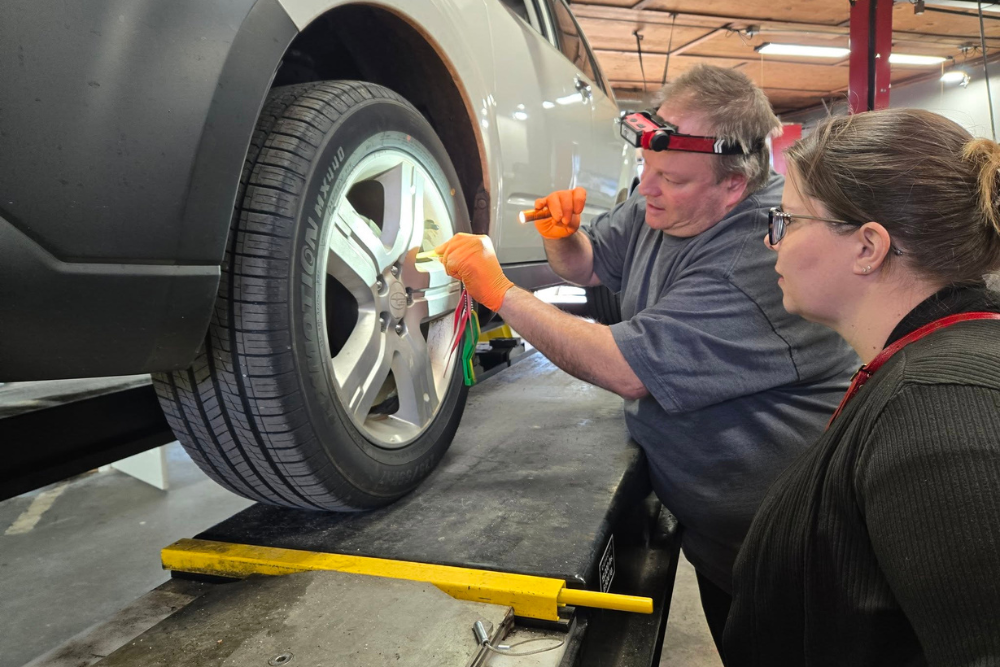When was the last time you thought about the health of your vehicle? Many of us see our cars as reliable tools for everyday life, but just like any machine, they need regular care to run smoothly. Ignoring basic maintenance might seem like an easy way to save time and money in the short term, but this choice can lead to unexpected troubles down the road. From sudden breakdowns to costly repairs, neglecting routine check-ups often comes with hidden costs that outweigh those initial savings. Understanding these implications can help you make smarter decisions for your car—making it not just a ride, but a dependable partner on your journeys.
Skipping regular vehicle maintenance can lead to significant hidden costs, such as expensive engine repairs, shortened vehicle lifespan, and increased risk of overheating. Neglecting tasks like oil changes can result in degraded engine performance and potential failures that may cost you thousands in repair bills, ultimately impacting your overall investment in your vehicle.
Costs of Ignoring Maintenance
Skipping regular vehicle maintenance often seems like a harmless shortcut to save a few bucks. However, it can quickly spiral into hidden costs you hadn’t anticipated.
Immediate Costs
For instance, consider that a typical oil change costs between $50 to $100. It might not seem significant initially, but delayed oil changes can lead to severe engine damage. Repairs stemming from this negligence can reach staggering figures—anywhere from $3,000 to $5,000. Interestingly enough, a study conducted by AAA signaled that about 35% of car owners have either skipped or postponed essential maintenance tasks. This decision often leads to hefty repair bills that could have been easily avoided with timely upkeep.
It’s easy to brush off regular checkups when everything seems fine, but mechanical issues often lie in wait beneath the hood. Allowing small problems to snowball means what could have been a minor fix transforms into an expensive headache.
Long-term Financial Impact
Ignoring routine tasks such as changing filters or checking fluids may appear inconsequential. Yet these oversights can trigger frequent major repairs down the line, significantly inflating the overall cost of ownership. Data suggests that over ten years, regular maintenance could tally up to approximately $1,500, while repair costs from neglect may outstrip $10,000 or more.
Consider this: The key is to think long-term. Spending on consistent service helps prevent avoidable breakdowns that could devastate your budget later on.
Each component of your vehicle requires attention regularly—tires need rotation for even wear, brakes require periodic checks for safety, and all those fluids must be topped off and checked for contamination. By postponing these tasks until “later,” you’re setting yourself up for financial strain that compounds over time.
Additionally, unexpected repairs tend to arise at the most inconvenient moments—like when you’re en route to an important meeting or vacation. Imagine facing transmission issues; repairs could set you back anywhere from $2,900 to $7,100, depending on severity. In contrast, a simple routine check could limit extensive damages.
These immediate repercussions and long-term financial ramifications work together like cogs in a wheel; one affects the other. Regular maintenance doesn’t just save you money—it also enhances your overall driving experience.
However, there’s more at stake than just finances; the performance of your vehicle can take significant hits if maintenance is overlooked.
Impact on Vehicle Performance
One of the most noticeable effects of neglecting regular maintenance is the decline in your vehicle’s performance. Picture this: you pull onto a busy highway and notice that your engine sounds more like a grumble than a growl. You accelerate, but instead of the familiar smooth shift into higher speeds, there’s a sluggish response. This signifies deeper issues—ones that could have been avoided with simple maintenance routines.
Fuel Efficiency
Let’s explore fuel efficiency, as it reflects not only on your wallet but also on environmental impact. The U.S. Department of Energy reveals a striking statistic: a well-maintained engine can enhance fuel efficiency by as much as 4%. Conversely, dirty oil can cut fuel economy by up to 10%, translating into an additional $300 in fuel costs each year for many drivers. By investing time and money into proper vehicle care, you could save significant sums while also reducing harmful emissions.
So what can you do? Regularly changing your engine’s oil, keeping air filters clean, and ensuring tires are properly inflated can greatly improve your vehicle’s overall fuel efficiency. At SBS Automotive, we often see clients who groan at skyrocketing gas bills after acquiring older vehicles without regular maintenance history. Their delight after routine service highlights how drastically these approaches can enhance their driving experience.
Smooth Operation
In addition to fuel efficiency, maintaining core components such as spark plugs, timing belts, and air filters is essential for ensuring smooth operation. When these elements are in optimal condition, your car will run like clockwork rather than dragging its feet.
Many of our clients at SBS Automotive recount transformations from unreliable companions to dependable transports after comprehensive servicing sessions. One client humorously described their car returning “brand new,” ready for everything from school runs to weekend adventures without the anxiety of breakdowns.
Connecting regular maintenance to overall performance doesn’t merely reduce future repair needs; it also means ensuring you drive safely and efficiently every time you take the wheel. As we consider this relationship further, attention must also be directed toward potential hazards that arise from neglecting care for your vehicle.
Safety Risks of Neglect
Ignoring routine checks can compromise your vehicle’s safety, putting you and others at risk. Each component of your car plays a vital role in ensuring safe travel. If one part fails—especially those critical to stopping and steering—you could find yourself in a precarious situation. For instance, consider the brake system: worn-out brake pads and low brake fluid levels drastically reduce your stopping power.
Brake System Failures
According to data from the National Highway Traffic Safety Administration (NHTSA), about 22% of accidents are due to brake-related issues. Imagine cruising down a quiet street when suddenly, a kid runs into the road. A properly maintained brake system might save that child’s life—or yours—in an instant. But if you’ve neglected those brake pads, your response time may not be fast enough, leading to potentially catastrophic outcomes.
Now let’s not forget about tires—the unsung heroes of vehicle safety.
Tire Management
Regular tire rotations are crucial for maintaining proper traction and handling. Neglected tires can lead to uneven wear, severely impacting their performance. Poorly maintained tires increase the likelihood of blowouts and skidding, especially in adverse weather conditions.
Remember: Tires are your only connection to the road. Keeping them in good condition isn’t just important; it’s utterly essential for ensuring your safety.
But the impact of neglecting vehicle maintenance extends beyond mere safety—it ultimately leads to long-term financial burdens as well.
Consequences Beyond Safety
As any seasoned driver knows, ignoring these issues can create a cascade effect leading to more severe problems down the line. Delays in addressing worn brakes can result in rotor damage or even complete brake failure, which puts your life at risk while incurring hefty repair bills. Likewise, driving on balding tires can lead to costly accidents—or worse—total losses. So, regular check-ups aren’t merely optional; they are investments in your own safety and financial well-being.
With the hidden costs of neglecting vehicle maintenance now clear, we turn our attention to how these choices can create significant financial implications over time.
Financial Consequences Over Time
Long-term financial stability takes a significant hit when routine vehicle maintenance is neglected. You might think that skipping oil changes or delaying tire rotations won’t hurt much in the short term, but costs can snowball quite quickly. A car that regularly receives maintenance not only runs better but also maintains a healthier value over time, which is crucial when considering future resale or trade-in options.
Depreciation
Consider this: a poorly maintained car can depreciate up to 20% more than one that is kept in good condition. What does that mean for you? If you bought your vehicle for $20,000, without proper upkeep, it could lose its value down to about $5,000 instead of a more typical $10,000 after five years if properly cared for. This stark difference comes into play when you’re ready to sell or trade in, leaving you with noticeably less money in your pocket.
But not just depreciation affects your wallet; there are other financial aspects woven into this maintenance tapestry.
Warranty Voids
Many manufacturers require proof of regular maintenance as part of their warranty agreements. This means keeping meticulous documentation of every service performed on your vehicle. Failing to do so can result in a voided warranty, and that’s a costly mistake. Imagine having engine problems down the line only to find out you’d be footing the entire bill because you skipped those simple services. Higher repair costs lurking behind neglect can significantly dent your finances compared to any minimal upfront service price.
And it gets worse—not only could you face expensive repairs, but additional fees may arise if those repairs require parts that have been damaged due to lack of maintenance.
As we explore further, taking charge of regular vehicle care emerges as essential not just for maintaining performance but also for safeguarding your finances against unforeseen expenses while ensuring compliance with warranty conditions.
Importance of Regular Services
Scheduling regular maintenance services is essential for maintaining vehicle efficiency and longevity. A well-maintained vehicle doesn’t just perform better; it significantly reduces the chances of unexpected repairs that could disrupt your life. Think of it like a personal check-up—just as you would see a doctor to prevent health issues, your car benefits from routine visits to a mechanic.
Scheduled Checkups
Scheduled checkups act as proactive measures, helping to identify potential problems before they become major headaches. Just like keeping track of your health indicates whether or not you’re on the right path, these check-ups are critical for your vehicle’s performance. SBS Automotive provides comprehensive check-up packages tailored to catch even the most elusive problems. With timely diagnostics, studies show that around 80% of major vehicle issues can be prevented. Regular inspections cover everything—from tire condition to engine performance—and ensure that no stone is left unturned.
In addition to diagnostics, staying on top of fluid checks and changes is equally vital for optimal vehicular performance.
Fluid Checks and Changes
Ensuring proper levels of engine oil, coolant, brake fluid, and transmission fluid plays an essential role in keeping your vehicle operating at its peak efficiency. Each fluid serves a specific function: engine oil lubricates moving parts, coolant regulates temperature, brake fluid ensures safe stops, and transmission fluid allows smooth gear shifts. Neglecting these fluids can lead to severe repercussions—think rising temperatures and erratic shifts that could cost thousands in repairs. Therefore, regularly checked and changed fluids preserve the integrity of your engine and ensure safety while driving.
I once had a client who ignored an oil change for an entire year—he called me after noticing his car made a “funny sound.” Well, that “funny sound” turned out to be the engine starting to seize up due to lack of lubrication! His mistake serves as an important reminder: regular maintenance may seem tedious but can spare you from “humorous” situations that could cost you dearly.
Beyond preserving performance, routine maintenance fosters long-term savings by extending the life of your vehicle.
Long-Term Benefits
Vehicles receiving regular maintenance have been shown to last significantly longer than those that don’t—achieving an increase in lifespan between 15% to 30%. Sticking to a schedule not only keeps your car looking great but also pays dividends in durability and reliability. Investing time and money in your car now will save you from costly repairs down the line; one study found that neglecting maintenance could increase ownership costs by over $1,000 annually.
By adhering to regular services and listening to your vehicle’s cues, you’re honoring not just your financial commitment but also contributing positively to road safety too.
As we explore further, it’s essential to understand how these maintenance practices directly influence the overall longevity of your vehicle.
Extending Your Car’s Lifespan
Regular maintenance ensures that your car remains operational for longer periods, maximizing the value of your investment. When you take the time to schedule routine services, such as oil changes and fluid checks, you’re like a gardener tending to plants—nurturing them to thrive rather than merely survive. Each act of care equips your vehicle with the resilience it needs to weather daily wear and tear.
It’s worth noting that vehicles with consistent maintenance can enjoy an extended life of up to 100,000 additional miles compared to those that receive little to no attention. Investing in routine services could stretch the average vehicle lifespan from 150,000 to potentially over 200,000 miles. This is not just an abstract figure; many drivers testify to the significant difference routine maintenance makes.
In order to protect your investment and maximize your vehicle’s lifespan, contact us today at SBS Automotive or call us at (843) 695-3411 for reliable maintenance services.



